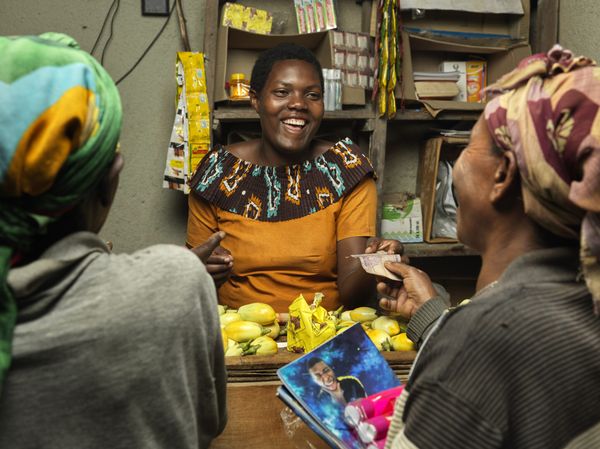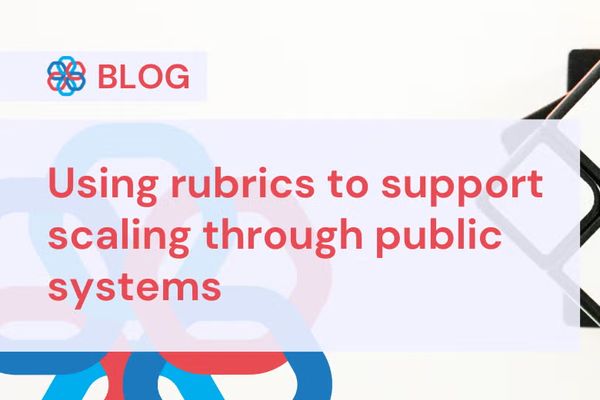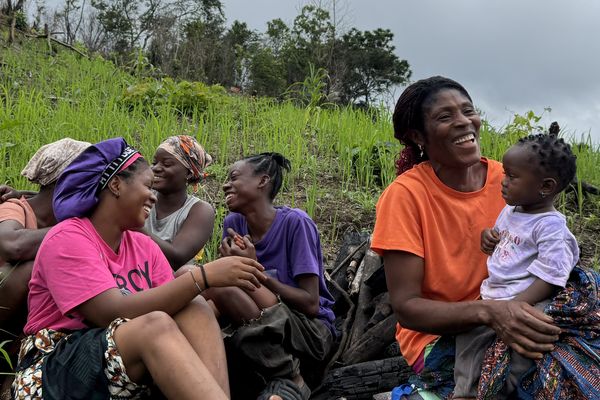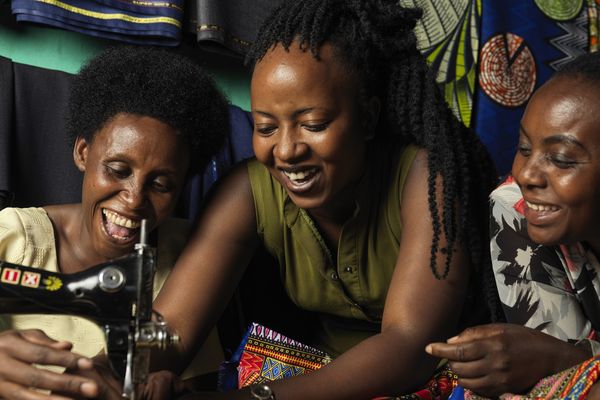Rwanda’s poverty rate has dropped but people living in rural communities continue to be disproportionately affected.
Rwanda, known as the ‘land of a thousand hills’, is the most densely populated country in mainland East Africa and has ranked among Africa’s fastest‑growing economies, with GDP growth surging nearly 9% in 2024. Yet income inequality and poverty persist, especially between the rural and urban centres. Despite the downward trend in poverty rates, as per the World Bank’s USD 1.9 poverty line for low-income countries, 55.5% of people or roughly 1 in 2 people in Rwanda are categorised as poor.
Away from the urban centres of Kigali, Rwanda’s fast-growing capital, most people rely on agriculture as their main source of income. While research shows that agriculture, especially of crops such as maize, is profitable, many smallholder farmers don’t end up making enough because a portion of the produce is usually stored away for personal consumption.
Diane, the protagonist of this story, used to be one such smallholder farmer from Ruhango district in Rwanda, located in the southern province of the country. It is about 64 kilometres away from Kigali and it takes roughly around two hours to get there, weather permitting.
Here in Ruhango, in the village of Bugarura, Diane lives with her husband Fidele and their four-year-old son. The couple were smallholder farmers, growing crops on a piece of land they shared with Fidele’s parents. The harvests from the small piece of land was not enough to meet the needs of the family. Diane wanted to grow and change things for herself and her family.
When she found out about a programme that offers life skills training specifically tailored to young women such as herself who are looking for better livelihood opportunities, Diane was quick to say yes.
About the programme
The Mastercard Foundation Accelerating Impact for Young Women (AIM) in partnership with BRAC in Rwanda is equipping 63,000 adolescent girls and young women, with age-appropriate entrepreneurship, employability, and life-skills training, as well as the tools to start and scale their own businesses. Diane is one of them.
The programme supports girls and young women at different stages of their lives. For younger girls, it’s about staying in school and building a strong foundation with life skills and financial basics. As they grow older, the support shifts to helping them balance education with small income-earning opportunities. And for young women ready to work, AIM focuses on practical skills, training, and the resources they need to find dignified and sustainable livelihoods.
Diane started attending the AIM clubs, which are safe spaces led by mentors selected from within the community. “Through these sessions, we learned about family planning, child spacing, communication, and self-confidence. These lessons left a big impact on me. I made the decision to postpone having a second child so we could focus on building a stronger future for our firstborn,” says Diane while recalling her experience at the AIM clubs.
Young women are supported in three key areas: social empowerment, economic empowerment, and advocacy. On the social side, girls and young women learn about their rights, build confidence, and gain knowledge around gender, relationships, health, safety, and planning for their future. Economically, participants receive practical training based on their age and needs, ranging from financial literacy and entrepreneurship to vocational skills, digital training, and climate-smart farming. They are also supported to start businesses or access services and markets. Finally, we focus on amplifying the voices of girls and young women. They participate in storytelling and communications training so they can share their experiences, influence decision-makers, and push for changes they want to see in their lives and communities.
Once Diane completed the AIM club sessions, she received a start-up capital to set up her small business. After assessing the demand in her neighbourhood, Diane decided to open a store selling everyday household necessities.
Her decision paid off almost immediately as she says, “In our area, such shops are rare, so my business started making a profit right away.”
One other aspect of the AIM club sessions focuses on financial literacy sessions where participants learn how to save and manage their money. Diane along with other women from the club joined a savings group. This was the first time many in the group were ever saving and they soon realised just how beneficial it would be. Even though that is not how Diane felt at first. “Saving just 200 Rwf a week each day was a challenge. But we stayed committed because we all had plans. And little by little, we began to see the results.”
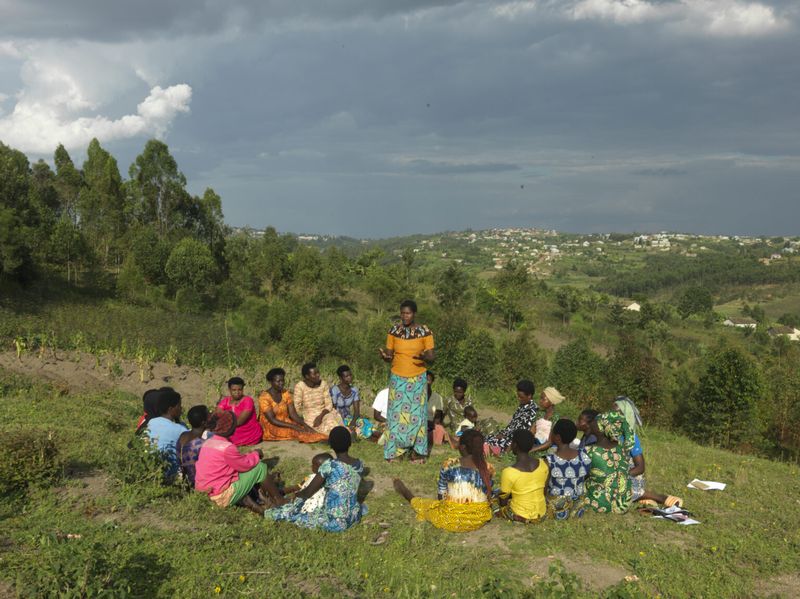
Credit: BRAC International, Peter Caton, Rwanda, 2025
After saving weekly for 48 to 52 weeks, the savings group conducts a share-out where they each get the full amount they have saved including any interest that they may have accrued over their saved amount. With her portion of the share-out, profits from her store, and some encouragement from her husband, Diane decided to invest in farming and livestock.
“We started with chickens, but the growth was slow. We then shifted to pigs, which proved to be a better investment. Pigs grow faster, bring in income more quickly, and provide natural fertiliser that supports our farming activities,” says Diane, confident that diversifying her income would prove fruitful in the end.
Their household, which once depended on a single income source, heavily reliant on the harvests from their small piece of land, has now diversified income streams: A shop, A farm, and their livestock.
“I’ve learned that small actions, taken consistently, can lead to big changes.”
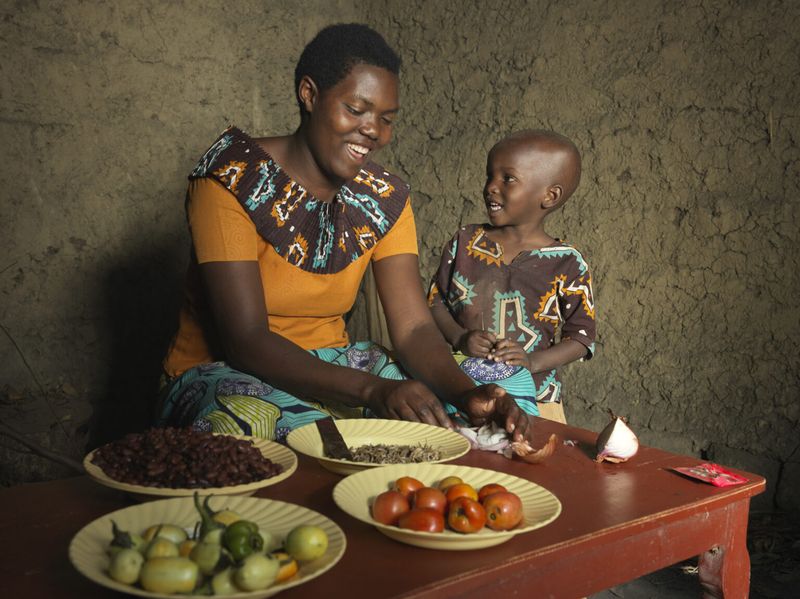
Credit: BRAC International, Peter Caton, Rwanda, 2025
My next goal is to expand the shop, increase our capital, and stock more products to meet the growing needs of my customers. I believe we are just getting started, and with my family by my side, anything is possible.”
Written by: Alex Bekunda, Country Director, Rwanda and Odila Umuziranenge, Regional Manager, AIM Programme, Nyanza region
Edited by: Abida Rahman Chowdhury, Senior Manager, Content and Thought Leadership
Photo credit: Peter Caton
